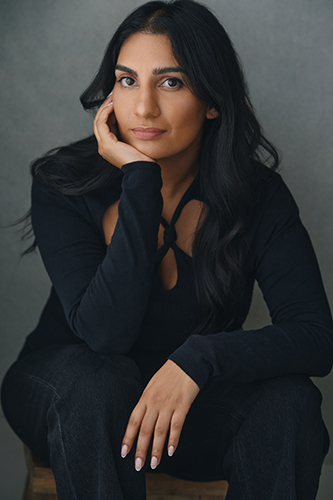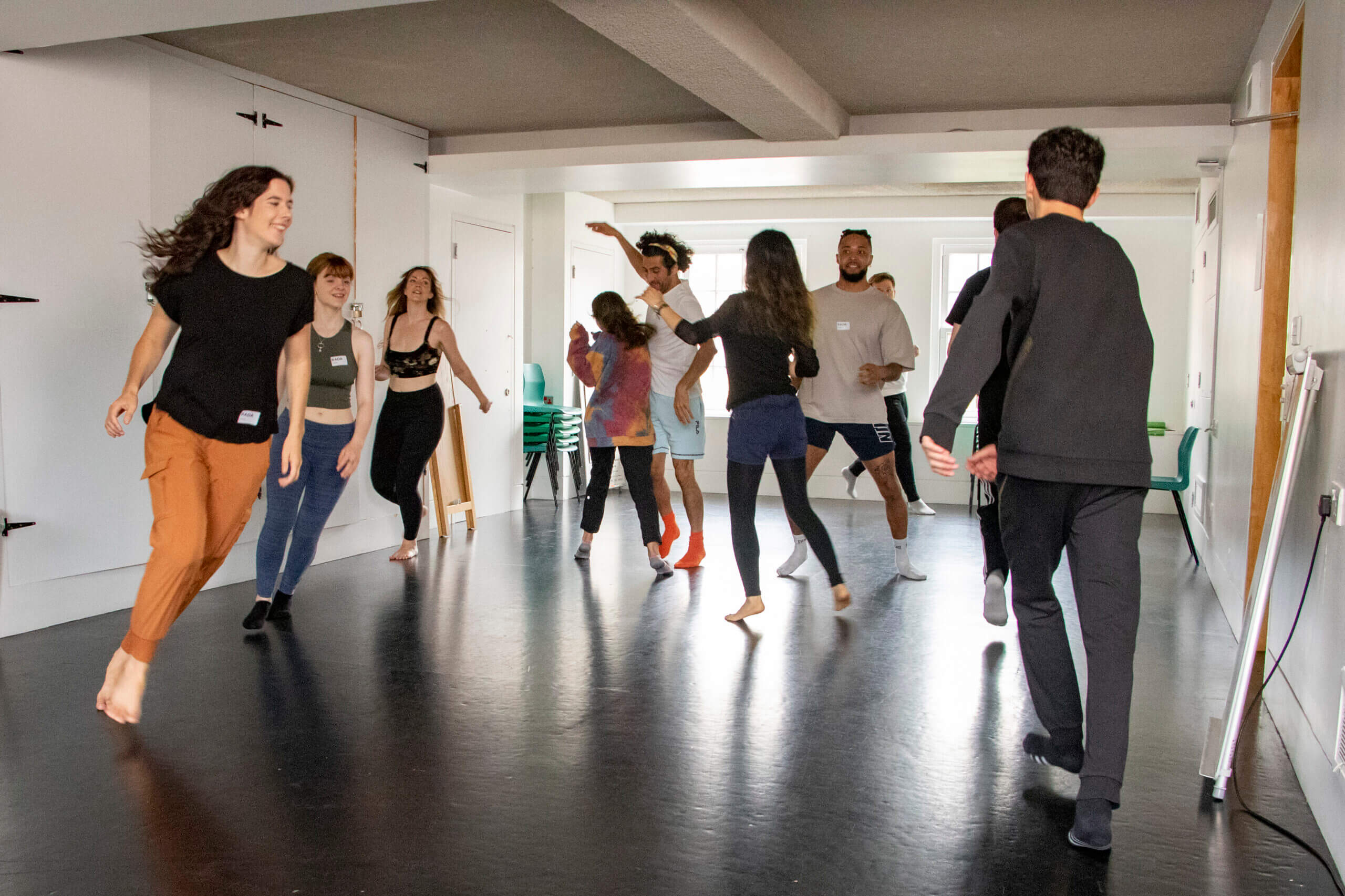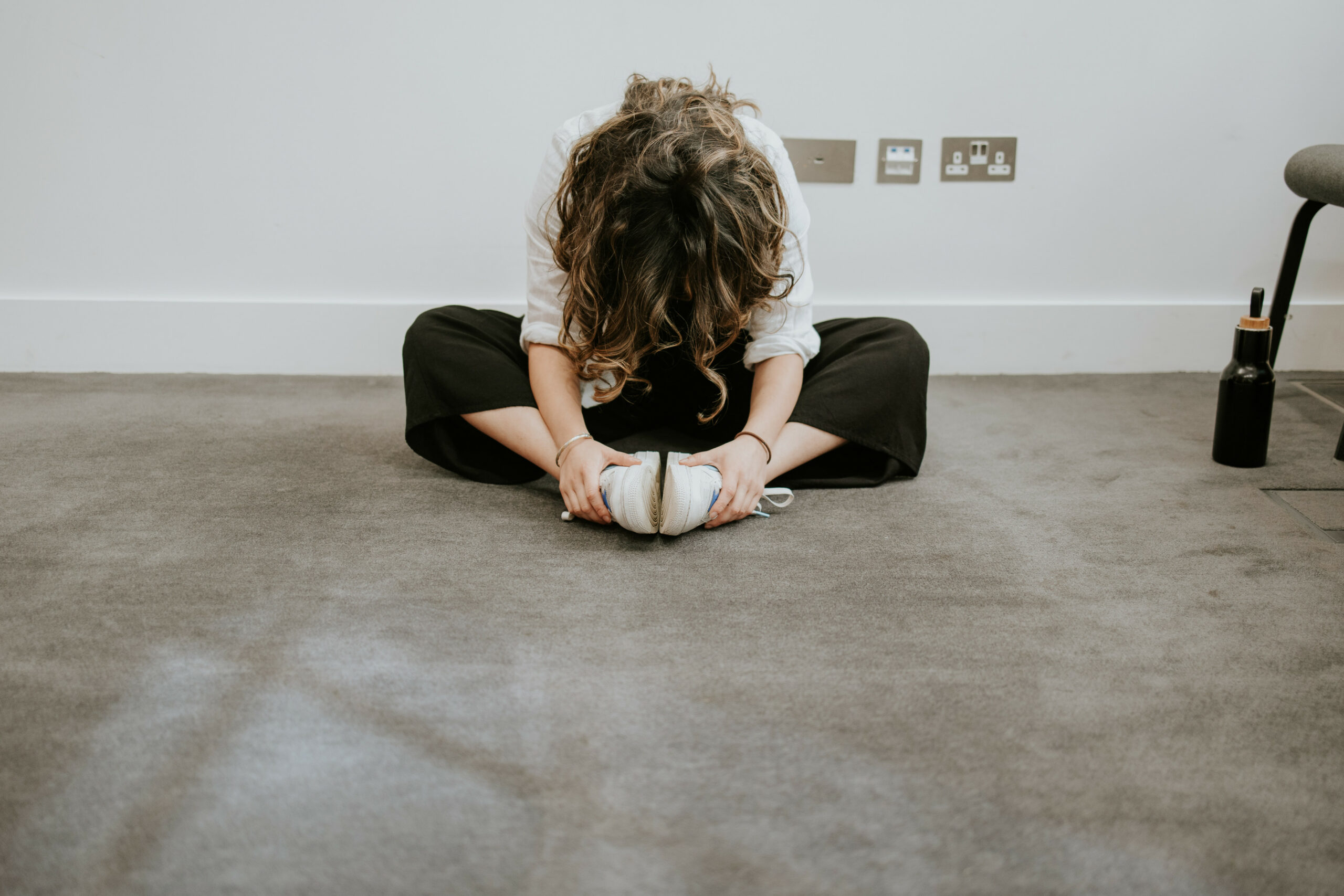14 books for actors to read during drama school training to help inspire and improve their acting skills.
The most imperative time in a working actor’s career is arguably the years spent at drama school. Within the safe perimeters of training and studying the craft of acting, drama students will learn to use tools and techniques that will serve them for many years. A considerable portion of the time spent at drama school is focused on reading, including plays, books on the history of theatre, research articles and materials on acting styles and techniques.
It’s important to use books practically to improve your skills. Working actors will spend a lot of time reading scripts or plays and additional books for character research. However, exploring outside these materials is important to expand your knowledge of the craft. Reading is an incredible tool for an actor and harnessing it in a way that allows you to utilise the content is an essential part of pursuing acting as a profession.
Below are a variety of books, divided into three sections, that we recommend you read while studying at drama school to help evolve yourself and your career:
The Classics and How to Keep Them Fresh
The standard drama school reading lists will have books by famous acting teachers like Uta Hagen, Sanford Meisner and Konstantin Stanislavski. Depending on your school’s method of teaching acting, you’ll likely begin to delve into these acting styles during your training.
Some methods may not be useful to everyone and actors may have preferences as they train, but it’s important to explore these styles to figure out what works best for you.
For example, Stella Adler believed in using an actor’s imagination to form the character’s world. During my training in New York, one of the main methods used was the Meisner technique, which focuses on repetition, emotional preparation and improvisation. These methods may help you with your work but might not be fully covered during your training.
Reading about the styles and techniques used worldwide and having these classical methods to refer to is like having an anchor to ground you. If you’re struggling with the methods being taught during your training, research some styles that are new to you.
There are styles and techniques outside of what’’s being taught in the classroom, and acting is all about ‘doing’. By exploring a variety of styles and methods, you can discover an abundance of techniques to reach your creative potential.
- Sandford Meisner on Acting – for studying the Meisner Technique.
In this book, one of the most well-known and beloved actors in the US gives a unique insight into one of the most famous techniques used across the world today. Looking at observation and practical activities, this book is a must-have companion for any novice.
- An Actor Prepares by Konstantin Stanislavski – for learning the seven pillars of acting.
Preparation is one of the main tools an actor can use to offer themselves the best chance at delving into any character. This book conveys the importance of using your imagination and emotional range to prepare for an acting role.
- The Art of Acting by Stella Adler – for unlocking the imagination when forming a character.
A powerful insight into acting from Stella Adler, who spent her career working in New York and Hollywood, offering her advice on acting to the likes of Marlon Brando, Warren Beatty and Robert DeNiro.
- The Actor and the Target by Declan Donnelan – for a fresh and radical approach to acting that explores personal freedom.
An actor who has ever felt lost or panicked about what they’re doing will feel reassured after reading this book. The focus will strengthen the approach to the craft in a refreshing and more modern way than any other book on this list.
- Respect for Acting by Uta Hagen – for actors who struggle with over-intellectualising the work.
Acting is about looking inward and connecting from within to the outside. This book conveys how actors use their instincts and truth to serve the character or play. Broken down into three parts, the title reflects what the reader will gain from within its pages.
Practical Books and How to Use Them
You can read all the acting books you want, but you won’t learn how to act if you don’t put it into practice. Reading books that include you in the pages – instead of questions for the character you’re trying to embody – will help nourish your intuition and develop your instincts regarding the work.
Discovering your own voice as you play in acting class or when you fail at auditions is a vital part of the journey. There can be a teething period coming out of a training scenario, and not having the feeling of safety and the support of your peers is a drastic change. By using practical books that encourage you to sharpen your tools, you’ll develop your skill set to become self-reliant.
Practical books will also keep you actively engaged in learning and discovering. Explore the pages, write in the margins and cross out what you don’t find useful.
‘Don’t ask permission’ was one of my favourite pieces of acting advice from Dennis Hilton-Reid, which teaches you the mantra to trust your own choices and have faith in the preparation you have done. By being bold in your discovery, you can find a space between technique and play where the work can thrive.
- The Young Actor’s Notebook by Dennis Hilton-Reid – for inspiration, creative exploration, self-reflection and figuring out how to trust your instincts.
In this book, the author facilitates the actor’s transition into a professional performer. Using a small black journal filled with inspirational quotes and blank pages meant to be filled with the reader’s own thoughts, Hilton-Reid emphasises the importance of using your own intuition as your companion.
- The Artist’s Way by Julia Cameron – for rediscovering creativity, keeping proactive and living the life of an artist.
This book has been recommended by so many people, not just creatives. It offers the reader a practical guide to unlocking your creativity. It’s a companion book that requires you to commit to the work of creativity, which includes activities like journaling, artist dates and unlocking your inner artist.
- Taming the Psychlops: How to Do Your Best Work in an On-Camera Audition by Ellen Novack – for exploring on-camera work using valuable tips and systems for preparation.
Any actors who have spent their working life on stage may struggle to adjust to on-camera work, especially in the time of self-tapes and Zoom recalls. This book breaks down the fear and hesitation that can form around working in front of a camera. Offering insight and specific tips for acting or auditioning on camera, Novack takes the fear out of on-screen work and offers readers a new perspective on befriending the camera.
- The Tao of Show Business: How to Pursue Your Dream Without Losing Your Mind by Dallas Travers – for the learning to master the entertainment business.
Travers breaks down the acting industry into digestible parts, acknowledging that the pursuit of acting takes passion and belief but also a practical and economic mentality. The business is separate from your dream; this book uses 40 essential tools to help keep you on a path that allows you to enjoy the pursuit.
Autobiographies by Inspirational Working Actors
Reading books written from the perspective of a professional actor at the height of their success can be a huge source of inspiration. Most actors start out in the same position you’re in: training at drama school. Many professional actors also face rejection throughout their careers, as you will. Reading about a person’s entire journey can give you a unique insight you didn’t have before.
- Finding Me by Viola Davis – for any actors that look with admiration at EGOT winners.
This book offers inspiration from those Hollywood stars who had humble beginnings. In her autobiography, Davis writes about being a working actor and recounts her time at drama school with an endearing honesty. She criticises some of the material used and writes eloquently about how it made her feel at the time. She talks openly about being typecast and she also discusses rejection. - A Life in Parts by Bryan Cranston – for a deeper look into acting and the journey from role to role.
Bryan Cranston is most notably known for his award-winning role in the hit television series Breaking Bad. Throughout his career, he has played every type of character in small parts and in real life. He tells his story in a heartbreaking, funny and light style and shares the inner work and preparation he did for his best-known role as ‘Walter White’.
- Page Boy: A Memoir by Elliott Page – for actors who want to look beyond success stories and explore personal sacrifice and turmoil.
This book looks at the darker sides to working in entertainment, the misery and the discovery and power of being yourself. The book is revolutionary in its heartfelt account of one of the most famous people in Hollywood.
- The Actor’s Life: A Survival Guide by Jenna Fischer – for any actor who feels doubt, rejection or depletion on the day to day journey.
This book retells Fischer’s journey as an actor, from moving to LA at 22 to booking a role on one of the greatest comedy shows in television history. Fischer’s stories are hilarious and relatable but offer an insight into what she learned and how to apply what she learned in her failures to help the readers in their own professional careers. From headshots to looking for representation, your best friend could have written this book.
- Character Breakdown by Zawe Ashton – for readers looking for a fresh, funny and warm approach to an autobiography.
You may know Ashton from Fresh Meat or her recent role in The Marvels. Her work started at age six, and in this book, she writes so refreshingly about her experiences in the audition room and grappling between herself and the characters she played in her career. As a woman of colour operating in a still patriarchal business, she has a painfully honest approach to failure and more.
Your experience at drama school is unique to any other form of education. You may find that only someone who’s shared that experience will truly understand how difficult it can be. Once you finish training, there’s a lot to face: financial difficulty, pressure to succeed, instability and uncertainty. By reading about actors who found their way out into the world, you can allow yourself to be taken up by their inspiring stories.
I found similarities between myself and Viola Davis’s journey, a discovery I still find astonishing. She moved to New York to pursue acting, she lived in a small apartment and she gave out flyers for shows on Broadway for $20/hour. Actors are survivors, we work hard and we get very little recognition for the work. Allow yourself to be inspired and motivated – to keep going. Connecting to these writers, who were once dreamers like you, will provide support when you need it most.
 Karen Johal is most notably known for playing Nicole Shelley in the award-winning Apple TV+ series Ted Lasso, starring opposite Jason Sudeikis, Brett Goldstein and Nick Mohammed. She currently stars in the BBC television series Phoenix Rise as Noreen Khan, starring opposite Paul Nicholls, Zita Sattar and Tyler Fayose. Karen’s film credits include: The Waves for MTV Entertainment directed by BAFTA award winner Sindha Agha; Frank’s Plan for Amazon Prime; and The High Performer for the award-winning digital creative We Are Tilt. She also starred in a global campaign for instant messaging platform WhatsApp with Broadcaster Alex Scott MBE and in a national Christmas commercial for retailer TK Maxx.
Karen Johal is most notably known for playing Nicole Shelley in the award-winning Apple TV+ series Ted Lasso, starring opposite Jason Sudeikis, Brett Goldstein and Nick Mohammed. She currently stars in the BBC television series Phoenix Rise as Noreen Khan, starring opposite Paul Nicholls, Zita Sattar and Tyler Fayose. Karen’s film credits include: The Waves for MTV Entertainment directed by BAFTA award winner Sindha Agha; Frank’s Plan for Amazon Prime; and The High Performer for the award-winning digital creative We Are Tilt. She also starred in a global campaign for instant messaging platform WhatsApp with Broadcaster Alex Scott MBE and in a national Christmas commercial for retailer TK Maxx.
In Theatre, Karen recently played the lead role in Ayad Akhtar’s The Who and the What at The English Theatre of Hamburg in Germany and has starred opposite Scottish actor Alan Cumming in the original musical Me and the Girls. She played the lead role in the regional premieres of David Harrower’s Blackbird and Duncan Macmillan’s People, Places and Things. Karen was also directed by Iqbal Khan in Mismatch, performing as part of the Sky Comedy Rep Festival at The Birmingham Rep Theatre in 2022.
Karen is a graduate of The American Academy of Dramatic Arts in Manhattan, New York where she performed on stage for The Public Theater at Shakespeare in the Park and at the world famous Carnegie Hall.
Headshot credit: Andy Brown











